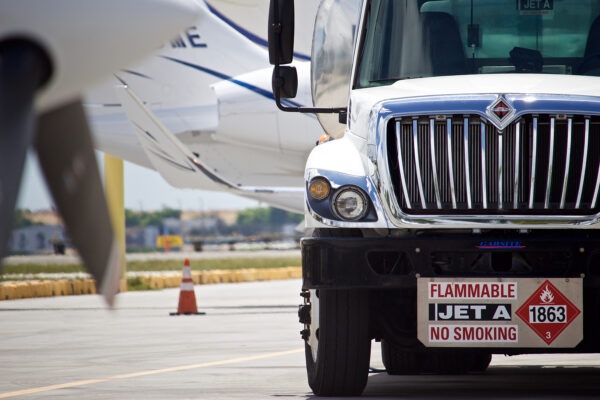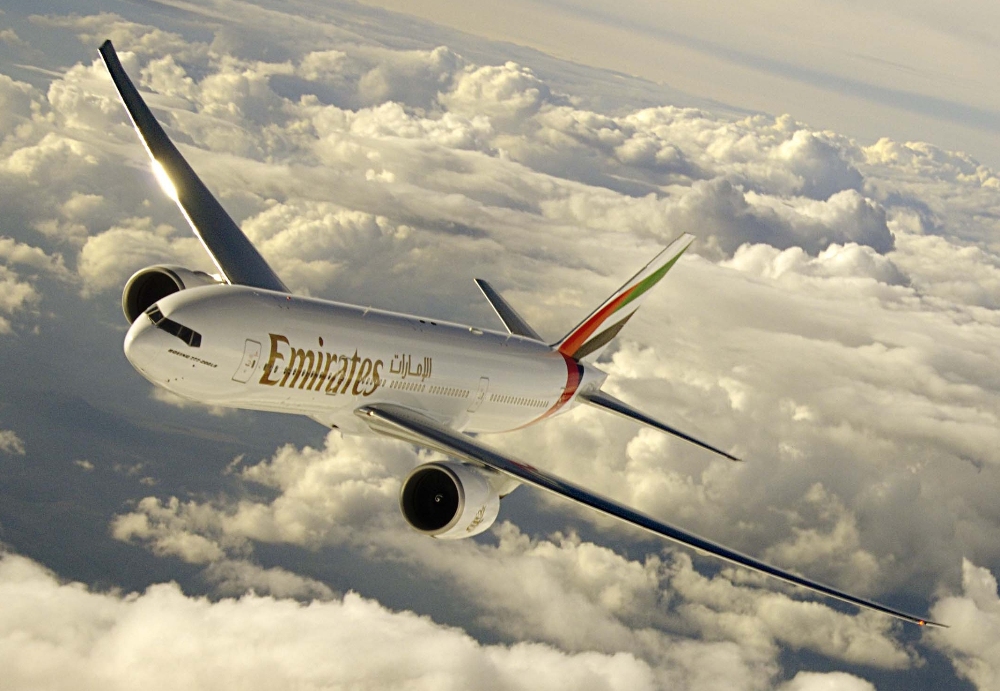Sustainable Aviation Fuels (SAF) – This term stands for a variety of sustainable aviation fuels made from very different raw materials. It was coined when the search for alternatives to kerosene began.
All fuels have two things in common: they are chemically almost identical to kerosene, but are not based on fossil raw materials, and they have a significantly lower CO2 footprint over their entire life cycle (from source to combustion). Sustainable fuels should therefore replace fossil fuels in all those areas of transportation that are difficult to electrify – for example in medium and long-haul aviation, heavy goods transport and shipping.
What does a classic jet fuel consist of?
Conventional aviation fuel is a mixture that is obtained from crude oil by distillation and refining. In addition to kerosene, diesel, petrol and other products such as naphtha, a basic material for the petrochemical industry, are also obtained in the same refining process.
Kerosene contains various hydrocarbons such as kerosenes, cycloparaffins and aromatics. The aromatics group is important for keeping seals elastic, for example. However, in addition to harmful CO2, nitrogen oxides and water vapor, they also produce soot particles during the combustion process, which later not only burden aircraft turbines with cost-intensive maintenance intervals, but also freeze as so-called “condensation nuclei” from small cold-water droplets to form ice crystals, which lead to the formation of unwanted contrails in the sky.
Kerosene is often supplemented with other compounds that are important for the safe operation of an aircraft – these include substances such as antistatic agents, icing and corrosion inhibitors as well as substances that improve thermal stability. The specifications for fuel do not stipulate how the fuel must be composed, but rather define its required physical properties.
Can SAF be mixed with normal kerosene?
At present, SAF may only be mixed with kerosene in commercial aviation.
A maximum blend of 50 percent is currently permitted. As only small quantities are currently available on the world market, the actual blend is less than one percent – across all flights.
Density of kerosene: ~ 0.81 pounds (lbs.)/liter
1 gallon kerosene (15°C) = 6.71 pounds (lbs.)
≙ 332 ounce (oz.) CO2- emissions

From 2025, an initial blend of two percent SAF is required by law for all flights departing within Europe (ReFuelEU Aviation 2023/2405). This proportion will then rise to six percent in 2030. In order to be able to fly largely climate-neutral by 2050, as intended, the proportion would have to rise to 70 percent by then.
Synthec Fuels has redefined the approach to waste-to-liquid (WtL) and combines the best of both worlds: Biofuels and synthetic fuels. Biofuels are produced from biomass (e.g. plants and wood products) or residual materials (e.g. used oil and waste). Synthetic fuels – also known as electrofuels or power-to-liquid (PtL) – are produced from two basic components: CO2-Carbon dioxide and water, but require large amounts of electricity.
Our Synthec Fuels “drop-in” solution “Synthec-Jet-A” is certified and economical and can already be blended with normal kerosene.
Mandatory minimum percentage of Sustainable Aviation Fuel (SAF)
by calendar year at EU airports in percent
2025
2%
2030
6%
2035
20%
2040
34%
2045
42%
2050
70%
Increase of more than 60 times necessary
Required amount of SAF to achieve the net zero target in 2050 (in million tons)
Production of Sustainable Aviation Fuel (SAF) in million tons
Share of SAF production in the total fuel demand of global aviation 2024
0.53%
Total demand > 300 million tons
What is the biggest advantage of SAF?
The Sustainable Aviation Fuels can be specifically designed in the laboratory for low-emission combustion, including as an additive for cleaning, maintaining and protecting the fuel system, so that little to no soot particles are produced during combustion in the aircraft turbines. Studies show that when SAF is used, up to 80 percent less soot is released into the atmosphere compared to kerosene. This results in fewer contrails, the formation of which increases the warming of the atmosphere. This means that these fuels can reduce the impact on the climate far beyond CO2 emissions – this also applies to the so-called non-CO2 effects of aviation.
Why are SAF and above all synthetic fuels considered more climate-friendly alternatives to kerosene?
During the combustion process, fossil fuels release the carbon that they have bound over a long period of time during their creation. In this way, they continue to accumulate CO2 in the atmosphere and thus contribute to global warming.
Sustainable Aviation Fuels can be produced in a much more climate-friendly way. The CO2 that is released during the combustion of SAF has previously been removed from the fossil cycle from sustainable sources. In this way, the harmful net CO2 emissions are significantly reduced. This is shown by the analysis of their life cycle. In addition, many of these new fuels can be designed in such a way that they produce virtually no soot and therefore cause fewer contrails. The production of synthetic fuels uses less water and land than the production of biogenic fuels. If they are produced using renewable energy and CO2 removal from the atmosphere, they can be almost completely carbon neutral.
If the energy transition succeeds in this area, who will benefit?
A world in which climate-friendly flying is a reality is also accompanied by a different structure on the ground. There are several reasons for this: Because there are so many different ways to produce non-fossil fuels, there will be different regional solutions. Today, the oil and gas industry is concentrated in 22 countries, which supply 90 percent of all fossil feedstock. In fact, half of the amount produced comes from just five countries.
According to estimates from studies, 5,000 to 7,000 refineries will be needed worldwide to produce the necessary quantities of SAF. In all likelihood, we will therefore no longer see monopolies and dependencies in the future, but rather regionally diverse (industrial) production. This fundamental change would open up a multitude of new economic opportunities in USD billion and fits perfectly with Synthec Fuels solutions and its proven technological (production)processes (www.synthecfuels.com/highlights).
More than 15 million jobs could be created around production – and not just in Europe and the USA.
Why many people find it difficult to use an airplane
A return flight from Düsseldorf to New York (2 times 6,043 km/3,747 miles), for example, emits 2.8 tons of CO2 equivalents per person. However, a person’s annual CO2 budget is only 1.5 tons. This is the maximum amount a person is allowed to emit to prevent the earth from warming by more than 1.5 degrees. Even one long-distance journey therefore exceeds the annual budget by almost double. For these reasons, more and more people have a guilty conscience about flying, because very few people want to consume the planet’s resources at the expense of this and future generations.

Emirates demonstrates the use of 100% SAF
Adel Al Redha, chief operating officer, Emirates Airline said: “This flight is a milestone moment for Emirates and a positive step for our industry as we work collectively to address one of our biggest challenges – reducing our carbon footprint. It has been a long journey to finally see this demonstration 100% SAF flight take off. Emirates is the first passenger airline in the world to operate a Boeing 777 powering a GE engine with 100% SAF. Such initiatives are critical contributors to industry knowledge on SAF, and provide data to demonstrate the use of higher blends of SAF for future regulatory approvals. We hope that landmark demonstrations flights like this one, will help open the door to scale up the SAF supply chain and make it more available and accessible across geographies, and most importantly, affordable for broader industry adoption in the future.”